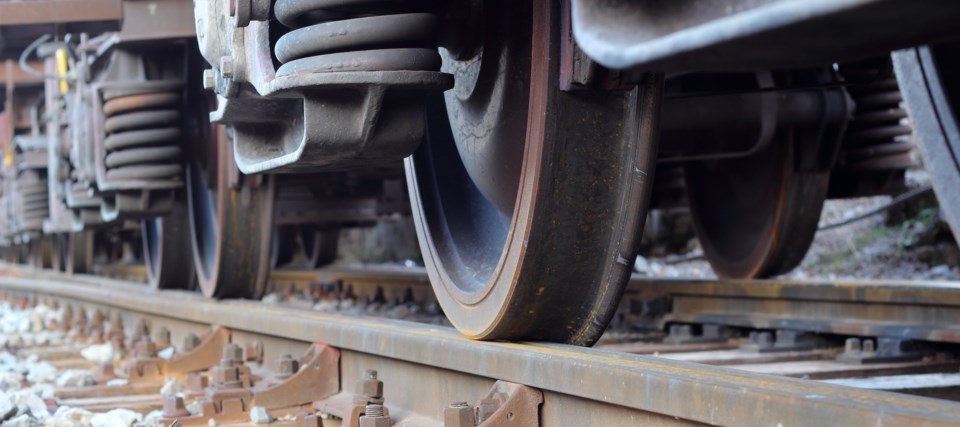As the Polar Bear Express gets back on the tracks today, the decision to reinstate the passenger service has been met with mixed reactions.
Ontario Northland has put COVID-19 safety measures in place but leaders from Moosonee and Moose Factory have expressed different opinions.
The Polar Bear Express train runs from Cochrane to Moosonee. The decision to resume passenger service, after it was suspended in early April due to the pandemic, was announced June 10.
Moosonee Mayor Wayne Taipale said the town supports the decision to reinstate the service.
“Residents believe it’s time to have the train back. We think that every mitigation has been put in place to stop if there’s an outbreak,” he said.
“The community in Moosonee, we feel that it is prepared if there should be a case in Moosonee. There’s a field hospital here with Weeneebayko Area Health Authority. Our control group feels that it’s time to move forward.”
Taipale noted the town is still asking people to refrain from non-essential travel, stay home and to keep a distance.
Moose Cree First Nation Chief Mervin Cheechoo said Moose Factory, which is across the river from Moosonee, has a lot of vulnerable people who will be at risk if they’re exposed to the virus in addition to a housing crisis and the water treatment plant that needs upgrading.
And as the freight service carrying essential supplies like food, fuel and equipment continues to run twice a week, Cheechoo questioned the need for a passenger train to reopen and said there’s a fear people will travel just because they feel “cooped up.”
“There are a lot of things against us, that’s why we’ve been fighting hard,” he said in a phone interview. “We’re totally against the passenger train reopening. Not travelling in the last few months hasn’t hurt us … We have everything we need here.”
“I’d like to call on the minister of transport and the Ontario Northland Transportation Commission (ONTC) board to rescind their decision to reopen the train,” Cheechoo said.
In the Porcupine Health Unit Region, which includes Moosonee, there have been 67 confirmed COVID-19 cases. Of those, 57 are resolved and eight people have died. There are two known active cases of the virus. The last positive test in the region was Sunday, June 21. In Moose Factory and Moosonee, there have been no confirmed cases.
The passenger train between Moosonee and Cochrane will be running twice a week, on Mondays and Thursdays at the same departure times.
Prior to boarding, passengers will be asked questions. There will be a limited number of seats available per coach to ensure physical distancing.
All passengers and employees will be asked to wear a mask when boarding or moving through the coach, except for when they’re seated. Children aged two and under and people with difficulty breathing will be exempt from covering their faces.
The dining car will not be in service and passengers won’t be able to move between cars.
The passenger cars will be cleaned after use and an anti-microbial spray has been applied to all passenger coaches.
"There will be a maximum of 83 seats available although this could be less depending on how many reservations from the same family or single tickets reserved," Ontario Northland's communications manager Renée Baker said in an email. "We must configure the seating arrangements to allow the recommended six feet of physical distance."
Moose Cree First Nation's community health co-ordinator Christina Linklater cited a high rate of diabetes and cardiac issues among the community and a high population of elders as some of their concerns.
“If people move, the virus moves,” she said. “We have no vaccine, we have no cure, we have a lack of infrastructure and our northern communities were isolated.”
She said it would be ideal to have the service open for essential travel only but community leaders were told it couldn’t be implemented. The service open "free-for-all" is a concern for them, she said.
“With the planes coming in, there could be five people coming at a time but now you’re looking at (more) people travelling bi-weekly and we don’t know if they’re essential or non-essential.”
It is “too early” to resume the service and there was “chaos” in how the decision to reinstate the service was made, added Moose Cree First Nation’s Deputy Chief Earl Cheechoo.
“Initially, we agreed to partake in discussion with Ontario Northland Railway (ONR) to look at it. But we were misled. Even though we disagreed to reinstate the train, we talked about precautionary measures and that’s what they’re using to reinstate the train.”
“We thought we were making progress on reconciliation, we thought we were making progress working with the rest of Ontario and Canada. But participating in this discussion with the ONTC, ONR, the transportation system just set us back again. I thought we were making an improvement.”
Linklater said they will be implementing checkpoints, asking people to do daily logs of their whereabouts and encouraging them to wear masks.
Ontario Northland’s president and CEO Corina Moore said the company has been participating in weekly calls with the community leaders from Mushkegowuk Council, Moosonee and the WAHA and has considered the needs of multiple stakeholders, including the Town of Moosonee's request for reinstatement.
“For many, access to the Polar Bear Express passenger train is essential in order to access health care and affordable food, attend post-secondary education, travel to work, and for businesses that rely on the train to transport their customers," she said in an email response.
“Different perspectives are important to our decision-making process and recommendations from these leaders have led to additional updates to our protocols. We understand the position of the First Nations leadership and respect it."
Ontario Northland is encouraging passengers to travel for essential reasons only.
“We cannot require documentation but trust passengers to use sound judgment. Transportation providers have a responsibility to ensure that transportation systems are accessible to all Ontarians," she said.



